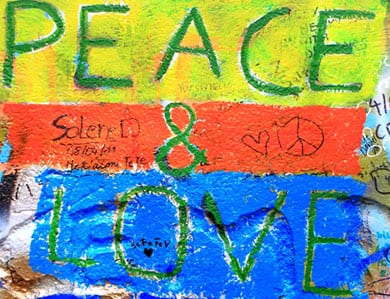 “God blesses those who work for peace, for they will be called the children of God” (Matthew 5:9).
“God blesses those who work for peace, for they will be called the children of God” (Matthew 5:9).
Every day, most of us are bombarded with new opportunities to take care of widows and orphans (James 1:27), feed the hungry (Isaiah 58:10), care for the poor (Psalm 82:3, Proverbs 14:31, Proverbs 21:13, Proverbs 22:9, Proverbs 28:27, Matthew 25:34-46, James 2:14) , defend the oppressed (Psalm 10:18, Psalm 146:7, Psalm 103:6, Psalm 9:9), and reach beyond stereotypes and divisions (Luke 10:25-37). Although it is important to be aware of what is happening around us and of opportunities to serve, it can sometimes feel overwhelming and we are tempted to shut down. On this side of heaven, many people begin to suffer from “compassion fatigue.”
Compassion fatigue involves a gradual decrease of compassion over time. It is common among professionals such as nurses, psychologists and first responders who witness trauma over a prolonged period of time. With an increase in social media and information, news of devastating and sad events and situations is always at our finger tips, streaming into our homes and offices.
Compassion incites us to rise up and get involved, to pray for those who are suffering, to volunteer our time, to share our financial provision with those in need, and to listen to and encourage those who are struggling. When we see so much need, it is natural to become weary, hopeless, and maybe even critical. In light of this, what does it mean to be a peacemaker in the 21st Century?
Becoming a peacemaker
Let’s start with the idea of “becoming.” We are all clay on the potter’s wheel (Isaiah 64:8, Jeremiah 18:6). We are being molded by the hands of Christ and, at the same time, are the hands and feet of Christ. We must allow Christ to work in our hearts in order to become the instrument he wants to use in our family, our neighborhood, our workplace and our nation. Choosing the way of peace is not easy or glamorous. Becoming a peacemaker is a daily choice and involves a continuous re-orienting of our spiritual GPS from the direction of the world to the face of our Prince of Peace (Romans 8:12).
As Christians, we are designed for a right relationship with God and others. We are ambassadors of Christ. As a result of Jesus’ resurrection from the dead, God’s ultimate act of reconciliation (Colossians 1:19-22), we are new creation. We have a new identity as people who are called to be agents of reconciliation and peace.
As compassion fatigue threatens to make its home in our hearts, God invites us to shift our eyes heavenward and remember our source of compassion, wisdom, strength, mercy and joy. Through our pursuit of becoming ambassadors of Christ, we will begin to view others and our world through the eyes of Christ and allow his power and spirit to flow through us and fuel us. As we release our self-absorption and desire for short-term solutions, God will offer us the courage to sacrifice, share our gifts, offer hope, serve and listen; to run this race with an eternal view on this life.
A peacemaker for the 21st century
What does it look like to be an ambassador of peace today, in your sphere of influence, with your unique gifts? What does it look like to be a presence of reconciliation in your neighborhood? What one thing can you do today to work on your anger, bitterness, or hard heart? How might you view “the other” with a lens of shared humanity, seeking to understand rather than to judge and love rather than condemn? What one thing can you do to rise up out of your self-absorbed compassion fatigue and allow a God-centered compassion to flow through you? Many do nothing because they do not believe they will make a difference. Child of Christ, you can make a difference. Will you?
What will you do?
Right now, I invite you to write down one way you will allow God to use you for his glory. It may be looking into the eyes of a woman on the street without a home and acknowledging her dignity with a kind word, prayer or conversation. Maybe you are able to spare the cost of one complete meal each week to feed a needy child, locally or internationally. What if you were to invite God into your marriage and choose to forgive, maintain a heart of humility, serve sacrificially, and love unconditionally…as Christ? Do you have the privilege in your professional, family, or civic life to make decisions that promote peace, defend the oppressed, and care for those in need?
Christ is speaking to your heart right now with a message of his unique calling for your life. Follow him. He has equipped you with unique gifts, opportunities, and passions, and he will continue to equip you as his faithful ambassador of peace and reconciliation. It is both our identity and our calling. As you consider your next steps, ask yourself, “What would Jesus do?”
Dr. Terry Morrow is an assistant dean and assistant professor at Nova Southeastern University. She has a Ph.D. in conflict resolution and is in the process of becoming a Certified Christian Conciliator. She can be reached at [email protected].

Comments